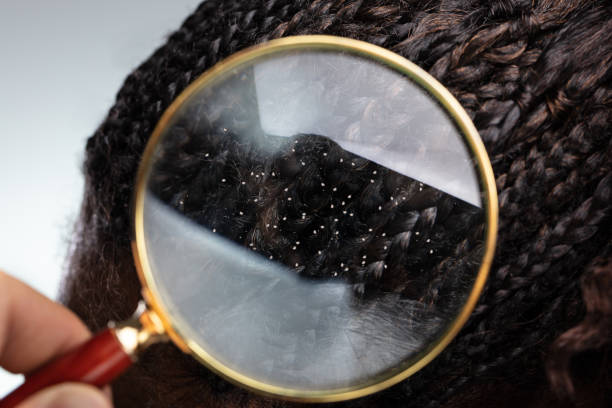by Jaleesa Robinson
It’s bizarre how you can be catfished by your own body, seriously. No need to wait on someone on the internet to catfish you because your body will always do it first. What does this mean? Well simply put, the body has a funny way of showing you that something might be wrong with it, the catfishing part comes in because you may think it’s one thing, but it ends up being something totally different. For example, a rash. If there is anything that will ever catfish you at least once in this lifetime, it’s going to be a rash. Sometimes you can never tell from first glance what that rash might actually be, especially on your scalp. It could be eczema, it could be dandruff, it could be psoriasis, or even a heat rash. Luckily, there are many signs for you to look for in order to help you get a better understanding of what it may be that you’re dealing with.
Your Scalp Is Suffering, But Why?
Have you ever noticed that some days, your scalp is on fire? And no not literally, but are there some days where your scalp seems like it’s burning? It could be because your scalp is really hot, but why is it hot? Has your scalp been itching really badly so the only thing that’s bringing you relief is scratching it?
Well, the constant scratching may be why your scalp feels like it’s on fire. This is because your scalp is dry, which can lead to it being inflamed.
So why are you suffering from an itchy, dry scalp? Well, there are a few reasons why you could be dealing with this type of agony. One reason is that your hair may be dirty causing dandruff and flakes and you’re in need of a good wash, deep conditioning, and some moisture.
Another reason you may be struggling is because there’s a rash on your scalp. However, this rash could be something a little bit more complex than just dandruff or a heat rash. This type of rash could be eczema or even psoriasis.
What Are The Differences Between These Three?
Dandruff, eczema and psoriasis are all different, even though they can look like each other at one point during a flare-up. Dandruff is a universal condition that causes the skin on your scalp to flake off. It’s not contagious or a serious condition because everyone can get it at some point in their lifetime
Mild dandruff is a type of seborrheic dermatitis and can be treated with a good shampoo and conditioner. Dandruff can usually be a result of eczema or psoriasis as well.
Eczema is a rash that can appear for different reasons. It can be due to the environment that you live in that causes the rash or it can be internal factors that you deal with that can make the rash appear. With eczema, it can be genetics that cause the red, itchy and raised skin or even dry climate.
Psoriasis is an autoimmune disease that shows on the skin. Your immune system is dysfunctional, which causes skin cells to grow too fast and causes them to grow on top of each other leaving a white scale on top of the skin.
How Can You Tell The Difference Between Psoriasis, Eczema and Dandruff?
Telling the difference between these three can be difficult for someone who isn’t trained to know what to look for. Essentially, psoriasis and eczema have very subtle differences and they can both lead to dandruff so you truly may never know without the proper research or speaking with a dermatologist. Though there are ways you can pinpoint the differences yourself just to get an idea to see if you may be dealing with something more serious.
Dandruff will show skin flakes on your scalp, beard, eyebrows, or even your shoulders because the flakes fell from your head. If there is hair where you’re experiencing these flakes, then it may be dandruff.
Psoriasis has a milder itch that does not irritate or burn immensely or at all in some cases. Usually, with psoriasis, you’ll see a white scale on the parts of your body that are inflamed, which can be your scalp, face, elbows and knees.
Eczema has a more intense itch to it, so you will want to keep scratching the area up until the point where you feel like you want to scratch your skin off. Though eczema can appear on the scalp, face, knees, and elbows as well, you’ll most likely see eczema grow on the back of your knees or inside of your elbows.
Still Unsure? It’s Best To Get A Second Or Third Opinion
If you notice any of these symptoms on your scalp, the first thing you may want to do is go get your hair washed and cleaned by a licensed professional just to see if it may only be dandruff.
If they notice that it may be something else then your next step should be visiting a dermatologist to see what they say. Make sure to ask the hairstylist what your scalp looks like, and what they see, and take notes to present to your doctor.
Thankfully, none of these skin conditions are contagious or fatal but you still deserve some relief.











